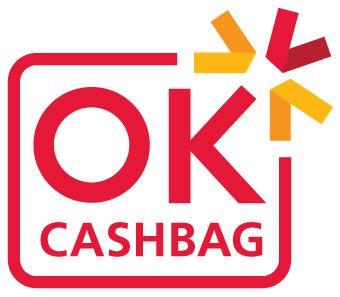
BARCELONA – While all the nifty new gizmos and doohickeys grab the headlines, the mobile industry is well aware that without providing security to customers and fostering trust with and among them, the scope of opportunities now laid out in front of the wireless business could vanish.
Wireless players all week long here at Mobile World Congress have been stressing privacy and security as overriding concerns, both protecting their customers’ data – and being transparent about what is collected, why, and to what benefit for them. It was perhaps best stated by SK Planet CEO Jinwoo So in his keynote presentation Wednesday morning. SK Planet is a platform and convergence service provider company recently spun off from leading Korean wireless provider SK Telecom.
It provides the integrated commerce service layers to SK Telecom customers such as digital wallets, banking, photo-sharing, navigation, mobile retail, digital content and so on. SK Planet has the number one mobile commerce site and number one loyalty program in the country, said So. Mobile, he noted, is the on-and off-ramp for Big Data since mobile devices can track and show what customers do, where they go, what their interests are, what kinds of content they like and how those preferences change over time – and therefore show operators how to treat them better.
Since Korea is “the land of mobile” he said to no one’s objection, they are clearly the leaders in this space with 75% LTE device penetration among customers already, added Su, so they are out front of everyone else in this space. Japan is said to be second at about 30%.
Thanks to that aggressive LTE deployment and the services that go along with that, since 2010 the monthly data usage of SK Planet customers has increased by 256x to 35,000 TB per month. To So, "that’s a chance to understand our customers two hundred and fifty-six times better.”
"That’s a chance to understand our customers two hundred and fifty-six times better.” – Jinwoo So
Mobile commerce is such a way of life now in Korea that his company estimates well over half of all retail sales will happen through a mobile device by the end of this year. SK Planet’s OK Cashbag even helps draw people into stores with immediate deals and free offers using NFC technology at point of sale – so traditional retailers are not cut out of the equation. The program has 50,000 retail partners and 37 million customer members – and So anticipates 10% of all commerce in Korea will happen through OK Cashbag in 2014.
But, with all this capability and all this data being gathered comes a big responsibility, said So. “Building trust will be very difficult,” he said. They key to it is transparency, letting customers know what data is being gathered and why and to what benefit – and empowering them to choose to take part, or not. “The key question is no longer the definition of Big Data, but how to utilize it in our operations and what kind of value we can create for our customers,” he explained.
Added Alcatel-Lucent CEO Michael Coombes, who also spoke Wednesday morning: “The first use of Big Data for service providers is to improve the user experience, (but) this can only happen if we as individuals and organizations can trust the network.”
For trust to happen, the industry needs security and to that end, the GSMA (the association which runs MWC) on Monday announced the launch of a collaborative initiative with partners Axiata Group Berhad, China Mobile, China Telecom, Etisalat, KDDI, Ooredoo, Orange, Tata Teleservices, Telefónica, Telenor, Telstra and VimpelCom, to develop a new service that will allow consumers to securely access a wide array of digital services using their mobile phone account for authentication.
The effort is geared towards making the SIM card the security solution for all
Dubbed “Mobile Connect” the new service “will simplify consumers’ lives, offering a single, trusted, mobile phone number-based authentication solution that fully respects their online privacy,” reads the announcement. Key players from the supplier side are also involved, including Dailymotion, Deezer, Gemalto, Giesecke & Devrient, Morpho, Oberthur and VALID.
“As we move to an increasingly connected world, more consumers than ever are accessing information and using a range of online services across both mobile and fixed line networks,” said Anne Bouverot, Director General, GSMA. “This digital life brings great benefits to consumers, but also introduces new concerns over the security of online identities. Mobile operators are ideally placed to provide the necessary authentication capabilities to enable consumers, businesses and governments alike to interact and access services in a private, trusted and secure environment.
“Mobile Connect will provide a streamlined experience for users; they will no longer need to create and manage multiple user names and passwords as the authentication and identification solution being developed will use the subscriber’s mobile phone number or mobile user name and information contained in the secure SIM card. The standard-based Mobile Connect service will utilise the OpenID Connect protocol, offering broad interoperability across mobile operators and service providers, further ensuring a seamless experience for consumers,” she added.
A pilot project run through the GSMA, Orange, Morpho and the Catalonian healthcare service in Barcelona has also agreed to test the authentication mechanisms in a live environment.
Orange intends to provide Mobile Connect-based solutions across its footprint in Europe and Africa and the Middle East by 2015. Ooredoo is also aiming to provide similar services in South East Asia around the same time frame. The GSMA expects to see additional operator launches of Mobile Connect in 2015. “We call on mobile operators, SIM card manufacturers, service providers and other key mobile industry participants to work with the GSMA to drive scale for this exciting initiative,” added Bouverot. For more, click here.



